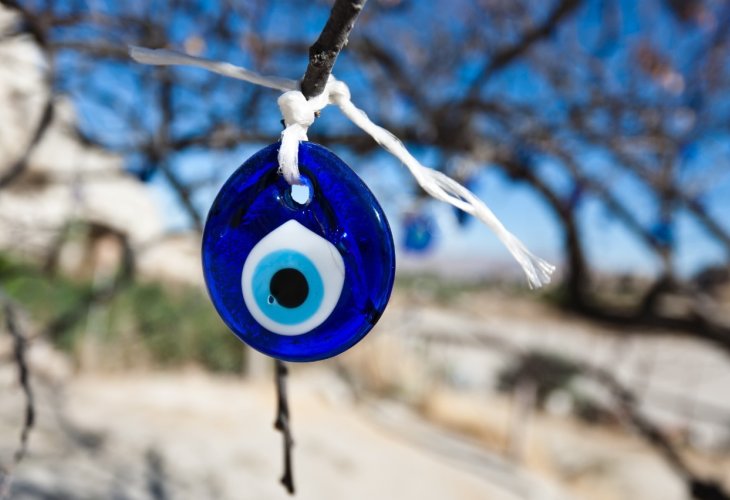Kabbalah and Mysticism
The Evil Eye in Judaism: What Balaam’s Curse Teaches About Envy, Energy, and Hidden Spiritual Power
How envy disrupts divine blessing, why Balaam’s spiritual weapon failed, and what ancient teachings reveal about guarding yourself through humility and positive vision
 (Photo: shutterstock)
(Photo: shutterstock)Throughout history, nations have sought “weapons that break the balance” — unconventional tools that could give them an edge over their enemies. In this week’s Torah portion, we find Moav attempting just that. Terrified by Israel’s military victories, King Balak sought a spiritual weapon — not swords or chariots, but the curses of Bilam (Balaam), a prophet of the nations renowned for his mystical power.
Bilam was hired to curse Israel, but God restrained his mouth. Despite repeated attempts, every curse he tried to utter turned into a blessing. Bilam possessed another weapon — a subtler, darker one: the evil eye.
The Spiritual Weapon: The Evil Eye
When Bilam “lifted his eyes and saw Israel dwelling according to its tribes” (Bamidbar 24:2), the sages teach that he sought to harm them through the ayin hara — the destructive gaze born of envy and arrogance.
As Pirkei Avot teaches, Bilam's traits were the opposite of Avraham’s: “A good eye, a humble spirit, and a modest soul are the marks of Avraham’s disciples. An evil eye, a proud spirit, and a greedy soul, are those of Bilam’s disciples.”
Ibn Ezra explains that Bilam’s “evil eye” was no mere metaphor — it was a force of real harm: “By the evil of his eye, he would bring misfortune.”
Is the Evil Eye Superstition — or Spiritual Reality?
Many dismiss the evil eye as old superstition, but classical Jewish sources describe it as a genuine spiritual energy capable of inflicting illness or even death. The Responsa Min HaShamayim records: “You surely know there are people whose destiny gives them eyes and tongues of harm… many illnesses and deaths come through the evil eye.”
Even so, other scholars interpret it more rationally. According to Rabbi Dessler (Michtav Me’Eliyahu), the evil eye represents the spiritual consequence of jealousy. When someone flaunts success, it stirs resentment in others, provoking judgment in Heaven to ask “Does he truly deserve this blessing?”
Both perspectives may hold truth:
Ayin Ra’ah — an evil disposition, characterized by envy and stinginess.
Ayin Hara — a spiritual gaze of harm, a real negative force unleashed by those with corrupt hearts.
Why Envy Is So Destructive
An “evil eye” not only poisons relationships but also endangers the one who arouses it. In a world obsessed with fame, luxury, and online exhibition, we often forget the wisdom of our sages who urged humility and modesty — not only as moral virtues but as spiritual protection.
Those who publicize their every success invite the scrutiny — and sometimes the jealousy, of others. The great Jewish leaders taught that true blessing thrives in quietness, not in public display.
The ayin hara is not a myth — it’s a mirror. It reveals how envy, arrogance, and spiritual blindness can sever the connection between a blessing and its divine source. Whether viewed mystically or psychologically, the lesson is timeless: Protect your blessings with humility, celebrate others with a good eye, and keep your gaze — and your heart — pure.

